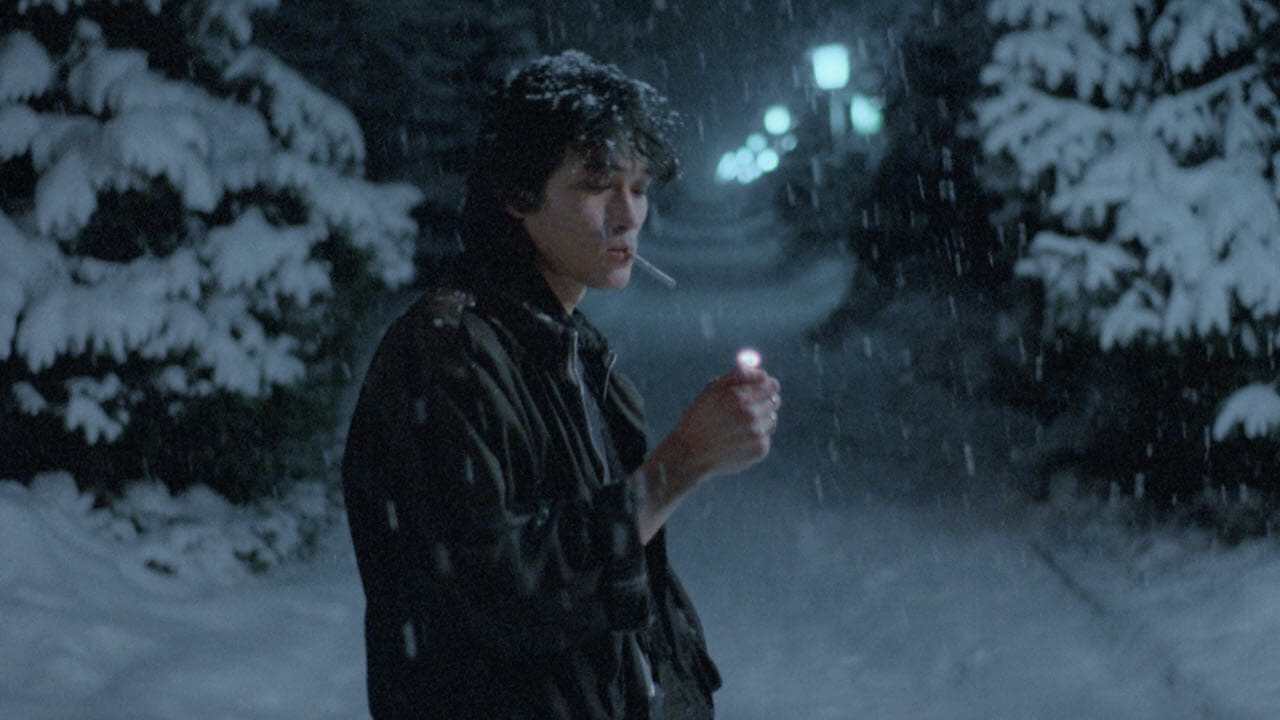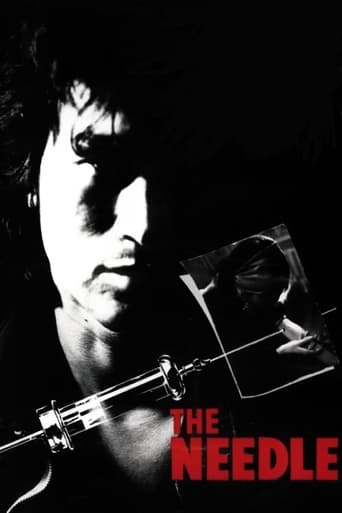



This is How Movies Should Be Made
This is a tender, generous movie that likes its characters and presents them as real people, full of flaws and strengths.
View MoreIt's a mild crowd pleaser for people who are exhausted by blockbusters.
View MoreThe film never slows down or bores, plunging from one harrowing sequence to the next.
View MoreThe mere presence of a celebrity is not enough to guarantee commercial as well as critical success of a film. A good film should also possess content, depth and form. Kazakh director Rashid Nugmanov made history of sorts in 1987 when he made "Igla" during the heyday of Glasnost and Perestroika in former Russia. At this juncture, it would be right if one mentions that we need to eternally thank Russian leader Mr. Mikhail Gorbachev for those bold initiatives which were instrumental in making freedom an attainable dream for countless young Russian people. It is true that Igla refers to a needle but the entire film is not a tragic discourse about drug addiction in Russia as on an official level drug addiction did not exist at all in Russia. It was considered a purely western phenomenon. In Igla we get a chance to see that director Rashid Nugmonov has shot a film which speaks more about the myth surrounding an impossible love which in many ways symbolized the difficult life of young generation in communist era Russia. Igla scores well in all artistic departments as it has great music by Viktor Tsoi which blends perfectly with constructive, meaningful lyrics. The major highlight of the film is its imagery which brings forth the bleakness of a troubled nation. For example- a visually rich scenes features an abandoned ship lying lost in dry sands of Aral sea. The late Russian rock star Viktor Tsoi is one of the principal reasons to watch this film due to his character having two distinct yet interesting styles. He appears credible as a comical hero who doesn't hesitate to use force in order to accomplish some true to life action scenes. The overall mood of the film is nice despite a minor dose of profane humor.
View MoreMoro is with Dina out near where the Aral seashore used to be. He notices scorpions on the ground. He sits above them, gathering them into a jar, and tells Dina that he never saw scorpions there (Kazakhstan) 3 years before. Is he simply talking nonsense, or is he speaking about the return of the Kazakh people, or is he speaking of the failures of the Soviet Union, which took away Kazakh identity in exchange for (failed) modernization? I am a huge fan of the band KINO (I remember first hearing their work in the mid-80s). I sat down with the director, Nugmanov, who is a great person. I have also seen "The Wild East." I love foreign cinema. Does this mean that my review is biased? Yes, to a point...."The Needle" (only available on DVD either non-subtitled from Russia or in PAL format with multi-subtitles from Sweden), is "one of those movies for those who were fans of Tsoi." You'll read this over and over and over again! However, by only taking that position, one doesn't understand the HISTORIC importance of a band like KINO or a movie of this type.Once upon a time, there was a place called the USSR. There was no allowance for individual expression, nor was there any films that were outside of State ideology. There was no drug use there. There were no gangs or blackmarket. That's how it was. Right??? NO. For one, Tsoi was extremely popular, and his lyrics were beautiful and poetic, and his music illegal. Movies that never existed (in the eyes of the State) somehow did exist ("The Kommissar," "Benya Krik," "Color of Pomegranates"). The Soviet Union had its problems, just like every country. When you think "Vodka," what country pops into one's head? It was great to be the state and control EVERY aspect of one's life for Socialism.However, there were some great break-away filmmakers that wanted more, regardless of what SSR they originated. Tarkovsky was one (he went into self-exile), Paradjanov was "crucified" by authorities, but others, like Romm, were able to toe that fine line. How some other movies passed while others didn't is well worth analyzing. Nugmanov, who was best friends with Tsoi, made this sole feature that starred the late rock star. Because of this, Nugmanov's "Igla" and "The Far East" shall go down into history books as significant to the study of the Soviet Union (and glasnost), film, and music (and the Kazakh New Wave cinema movement). These movies were made in the waning years of the Soviet Union...The movie is nearly a type of "commercial" vehicle for Tsoi, but it is also a "slap in the face" to the socialist regime that attempted to squelch free speech. Note the huge ship in the middle of a dried-up sea (I believe the Aral). The Kazakh people, like Nugmanov, definitely saw that their country was destroyed by socialist policy. Like the Indians in North America with alcohol abuse, drug abuse was a way of life in the SSR, but not allowed to be shown. There is no happiness through socialist realism. In reality, the SSR is barren, overcast, seedy, and sad. That it the way Nugmanov showed it, and he enjoyed placing Tsoi as the lead in it. There are other great characters (and acting) in the movie, most notable is Dina (Smirnova) and Spartak (Bashirov). Oh, and the movie is about drug abuse and failed policy, but also about the coolness of Tsoi. But the "needle" could refer to the feel-good socialist realism that is like a drug by the State to distance or hide people from the reality of life. It can also be Nugmanov using film as a needle to inject the audience with a bit of reality. Note how scenes of the movie begin and end with television programs. Try to "read" that!It's not an entirely original plot, but it sure is a good movie, even with its ambiguities (like, why has Tsoi returned and who is he?). Decent film compositions, use of acting talent, and, yes, music by KINO!9 of 10. ------- E.
View MoreIf you can understand Russian then you simply have to watch this film, I'm not aware of an English translation available but if you find one and have an interest in life at the end of the USSR then watch Igla. This film is a vehicle for Viktor Tsoi, Soviet rock superstar and one of the most talented musicians there has ever been. It's a film made on a budget but this adds to the atmosphere of the thing,The film has some great direction and although cheap has been made with thought and care. However the best thing about this film is it's soundtrack, truly brilliant, Tsoi really is a music icon and this film, made not long before his death is a fitting tribute to him and his legacy. I recommend this film wholeheartedly!
View MoreIn Soviet Union, nearly everything was Soviet -- Soviet music, Soviet food (you don't want to know the details, believe me), Soviet politics and, yes, Soviet cinema. And, as with all things Soviet, also Soviet cinema had those very special marks that distinguished it as typically Soviet. Now, Igla is the essence of Soviet cinema. Just about everything that has to be in Soviet Perestroika time drama is present in Igla -- lousy storyline about some "current problem" (drug addicts in this one -- although if it was called a problem then, I don't know how to call it now), very clear and visible efforts to make "art" out of this storyline, popular "star" (Tsoy) in leading role, Soviet rock as a soundtrack, unbelievably low-quality picture with mono sound and lots and lots of Soviet reality.Overall, I find the film very depressing (must be because it reminds me of the "good ol'" Soviet Union times), but what do I know. Anyway -- if you're interested in Soviet Union, especially Perestroika time, this is a must see -- it really captures the mood of the time and feels much like time-machine. But if you are not, then you really shouldn't bother (and it might be extremely hard to get a copy anywhere that's to West from Russia).
View More